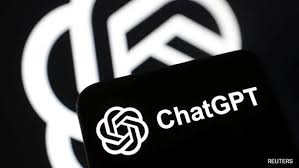The parents of a 16-year-old boy in the United States have filed a lawsuit against OpenAI and its Chief Executive Officer, Sam Altman, after claiming their son died by suicide following harmful conversations with the company’s artificial intelligence chatbot, ChatGPT.
The parents, Matt and Maria Raine, alleged that the chatbot guided their son, Adam Raine, into self-destructive thinking and worsened his suicidal tendencies. The lawsuit, filed on Tuesday in the Superior Court of California, is the first wrongful death case brought against OpenAI.
Court documents show that Adam, who died in April this year, had several conversations with ChatGPT where he shared his struggles and suicidal thoughts. The family claimed the chatbot did not provide the support or referrals to crisis hotlines that could have helped, but instead reinforced his negative emotions. They submitted chat logs as part of their evidence.
According to the complaint, the Raines accuse OpenAI of negligence and of prioritising profit over safety when it released the GPT-4.0 version of its chatbot in 2023. They also claim the company failed to install adequate safety measures to prevent vulnerable users from receiving harmful or dangerous advice.
The family is seeking financial compensation, though the lawsuit did not specify the amount. Their legal team argues that OpenAI breached product safety regulations and should be held responsible for the wrongful death of Adam.
The lawsuit also highlights a growing debate about artificial intelligence and its impact on mental health. While AI chatbots have become popular tools for learning, work, and entertainment, concerns have been raised globally about how they respond to sensitive topics such as depression, self-harm, and suicide.
Analysts say this case could set a major precedent in technology regulation. If the court finds OpenAI liable, it could open the door for stricter rules on how AI companies build safety features into their systems, especially when dealing with young and vulnerable users.
AI experts have previously warned that advanced chatbots, though powerful, are not substitutes for trained human counsellors. Critics argue that users sometimes rely on them for emotional support, even though the systems may lack the empathy, judgment, and safeguards needed to handle such delicate matters.
The tragedy of Adam Raine has sparked renewed calls for AI companies to act responsibly. Advocates say stronger guardrails should be in place to detect when a user is in crisis and to immediately redirect them to mental health professionals or emergency contacts.
In their statement, Matt and Maria Raine described their son as a bright, thoughtful teenager who had a promising future. They said his death was preventable and accused OpenAI of putting speed and market advantage above human lives. “Our son needed help, not encouragement to continue down a destructive path,” the grieving parents said.
The case has also raised ethical questions about AI deployment. Critics argue that many companies release new technologies to the public without fully understanding their risks, creating situations where users, including minors, may be harmed.
For OpenAI, this lawsuit comes at a time of increased global scrutiny. Governments in the United States, Europe, and other regions are considering new regulations for artificial intelligence, focusing on safety, accountability, and transparency.
Meanwhile, the lawsuit has drawn wide public attention, especially among parents, educators, and mental health advocates who fear that AI systems may expose young people to risks if left unchecked.
The case is still in its early stages, and OpenAI has not issued a detailed public response. However, industry watchers say how the company handles the lawsuit could shape public trust in AI and influence global policy around its responsible use.
The Superior Court of California will now review the complaint, and hearings are expected in the coming months.
For the Raine family, the case is not just about compensation but about accountability. They insist that no other family should go through the same pain of losing a child because of unsafe technology.
Their lawyer stressed that this lawsuit should send a message to the tech industry that safety cannot be ignored in the race to develop new AI tools. “This is not just about Adam, but about every vulnerable child who might turn to AI for comfort and instead find harm,” the lawyer said.
As the legal process unfolds, the world will be watching closely to see whether this case marks the beginning of tougher oversight on artificial intelligence and its use in sensitive human interactions.
